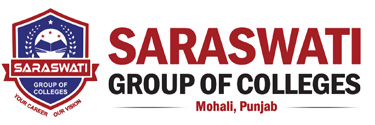SGC Gharuan: Nursing College, Ayurveda College, Pharmacy College
Program Overview
Bachelor of Pharmacy – Lateral Entry, abbreviated as B. Pharmacy LEET is a 3-year undergraduate program that teaches the procedure for preparing drugs and their functions. Recognized as a clinically focused area, this discipline combines a wide range of scientific concepts which are important to the discovery of new drugs and therapies. Saving one year’s fees and academic engagement, the lateral entry program gives candidates direct admission in the second year of B.Pharmacy and teaches them a syllabus that is the same as that of B.Pharmacy.
Admission Eligibility Criteria
- All those candidates who have passed the Diploma in Pharmacy from an institution affiliated with the Punjab State Board of Technical Education & Industrial Training or any other recognized University or any other recognized State Board of Technical Education shall be eligible to apply. Further, the diploma in Pharmacy and the Institute where the candidate has studied must be duly approved by the Pharmacy Council of India / AICTE. Also, the Candidate should have obtained at least 45% marks (40% in the case of candidates belonging to SC/ST category) in the above mentioned qualifying Examination.
- Students directly admitted to the Pharmacy 2nd year have to pass those subjects of B. Pharmacy 1st year which have not been covered under D. Pharmacy.
Message from
HOD
It’s no wonder, Nurses are consistently ranked as the most highly trusted professionals in India and worldwide. If you are poised to enter a field where demand is growing every day for skilled healthcare professionals, with outstanding opportunities throughout the country, and excellent income potential, the Department of Nursing (SPHE) of Saraswati Group of Colleges is helping Nursing professionals with well-equipped State-of-the-Art Labs and Multispecialty Parent hospital for Experiential learning.
Curriculum
Pharmaceutical Organic Chemistry II – Theory
This subject deals with general methods of preparation and reactions of some organic compounds. Also studied here is reactivity of organic compounds. The syllabus emphasizes on mechanisms and orientation of reactions. Chemistry of fats and oils are also included in the syllabus.
Physical Pharmaceutics I – Theory
The course deals with the various physical and physicochemical properties, and principles involved in dosage forms/formulations. Theory and practical components of the subject help the student to get a better insight into various areas of formulation research and development, and stability studies of pharmaceutical dosage forms.
Pharmaceutical Microbiology – Theory
Study of all categories of microorganisms especially, for the production of alcohol, antibiotics, vaccines, vitamins enzymes etc.
Pharmaceutical Engineering – Theory
This course is designed to impart a fundamental knowledge on the art and science of various unit operations used in pharmaceutical industry.
Pharmaceutical Organic Chemistry II – Practical
This subject covers common preparation and reaction processes for various chemical molecules. Reactivity of organic molecules is also investigated here. The emphasis of the curriculum is on reaction orientation and mechanisms. The syllabus also covers the chemistry of fats and oils.
Physical Pharmaceutics I – Practical
The subject covers the different physical, physicochemical, and scientific concepts related to dosage forms and formulations. Theoretical and practical elements of the course aid in the student’s understanding of many aspects of formulation research and development as well as stability analyses of pharmaceutical dosage forms.
Pharmaceutical Microbiology – Practical
The subject study of all types of microbes, particularly in relation to the production of alcohol, antibiotics, vaccines, vitamins, enzymes, etc.
Pharmaceutical Engineering – Practical
This course is designed to impart a fundamental knowledge on the art and science of various unit operations used in pharmaceutical industry.
Pharmaceutical Organic Chemistry III– Theory
This subject imparts knowledge on stereo-chemical aspects of organic compounds and organic reactions, important named reactions, chemistry of important heterocyclic compounds. It also emphasizes on medicinal and other uses of organic compounds.
Medicinal Chemistry I – Theory
This subject is designed to impart fundamental knowledge on the structure, chemistry and therapeutic value of drugs. The subject emphasizes on structure activity relationships of drugs, importance of physicochemical properties and metabolism of drugs. The syllabus also emphasizes on chemical synthesis of important drugs under each class.
Physical Pharmaceutics II – Theory
The subject deals with the various physical and physicochemical properties, and principles involved in dosage forms/formulations. Theory and practical components of the subject help the student to get a better insight into various areas of formulation research and development, and stability studies of pharmaceutical dosage forms.
Pharmacology I – Theory
The main purpose of the subject is to understand what drugs do to the living organisms and how their effects can be applied to therapeutics. The subject covers the information about the drugs like, mechanism of action, physiological and biochemical effects (pharmacodynamics) as well as absorption, distribution, metabolism and excretion (pharmacokinetics) along with the adverse effects, clinical uses, interactions, doses, contraindications and routes of administration of different classes of drugs.
Pharmacognosy and Phytochemistry I– Theory
The subject involves the fundamentals of Pharmacognosy like scope, classification of crude drugs, their identification and evaluation, phytochemicals present in them and their medicinal properties.
Medicinal Chemistry I – Practical
This subject aims to teach students the fundamentals of drug chemistry, structure, and therapeutic usefulness. The emphasis of the topic is on drug structure-activity interactions, the significance of physicochemical qualities, and drug metabolism. The chemical production of significant medications is also emphasized in each practical.
Physical Pharmaceutics II – Practical
The subject focuses on the different physical and physicochemical characteristics, as well as the underlying principles, that go into dosage forms and formulations. The practical elements of the course aid in the student’s understanding of many aspects of formulation research and development as well as stability analyses of pharmaceutical dosage forms.
Pharmacology I – Practical
The subject covers details about the various classes of drugs’ mechanisms of action, physiological and biochemical effects (pharmacodynamics), absorption, distribution, metabolism, and excretion (pharmacokinetics), adverse effects, clinical uses, interactions, doses, contraindications, and routes of administration.
Pharmacognosy and Phytochemistry I – Practical
The subject covers the principles of pharmacognosy, including its breadth, how to classify crude pharmaceuticals, how to identify and assess them, the phytochemicals they contain, and how to use them medicinally.
Note: In addition to the above-mentioned subjects, students must appear in Elective subjects mentioned in 1st and 2nd semester syllabus.
Medicinal Chemistry II – Theory
This subject is designed to impart fundamental knowledge on the structure, chemistry and therapeutic value of drugs. The subject emphasizes on structure activity relationships of drugs, importance of physicochemical properties and metabolism of drugs. The syllabus also emphasizes on chemical synthesis of important drugs under each class.
Industrial Pharmacy I– Theory
Course enables the student to understand and appreciate the influence of pharmaceutical additives and various pharmaceutical dosage forms on the performance of the drug product.
Pharmacology II – Theory
This subject is intended to impart the fundamental knowledge on various aspects (classification, mechanism of action, therapeutic effects, clinical uses, side effects and contraindications) of drugs acting on different systems of body and in addition, emphasis on the basic concepts of bioassay.
Pharmacognosy and Phytochemistry II– Theory
The main purpose of subject is to impart the students the knowledge of how the secondary metabolites are produced in the crude drugs, how to isolate and identify and produce them industrially. Also this subject involves the study of producing the plants and phytochemicals through plant tissue culture, drug interactions and basic principles of traditional system of medicine.
Pharmaceutical Jurisprudence – Theory
This subject is designed to impart basic knowledge on important legislations related to the profession of pharmacy in India.
Pharmacology II – Practical
This course aims to teach the fundamentals of a variety of topics, with a focus on the fundamentals of bioassay, including classification, mechanism of action, therapeutic effects, clinical uses, side effects, and contraindications of medications acting on various bodily systems.
Pharmacognosy and Phytochemistry II – Practical
The primary goal of the subject is to teach students how secondary metabolites are created in crude pharmaceuticals, how to separate, recognize, and generate them industrially. The study of growing plants and phytochemicals through plant tissue culture, as well as the analysis of medication interactions and fundamental ideas of conventional medicine, are all included in this subject.
Medicinal Chemistry III – Theory
This subject is designed to impart fundamental knowledge on the structure, chemistry and therapeutic value of drugs. The subject emphasis on modern techniques of rational drug design like quantitative structure activity relationship (QSAR), Pro-drug concept, combinatorial chemistry and Computer aided drug design (CADD).
Pharmacology III – Theory
This subject is intended to impart the fundamental knowledge on various aspects (classification, mechanism of action, therapeutic effects, clinical uses, side effects and contraindications) of drugs acting on respiratory and gastrointestinal system, infectious diseases, immuno-pharmacology and in addition, emphasis on the principles of toxicology and chrono pharmacology.
Herbal Drug Technology – Theory
This subject gives the student the knowledge of basic understanding of herbal drug Industry, the quality of raw material, guidelines for quality of herbal drugs, herbal cosmetics, natural sweeteners, nutraceutical etc. The subject also emphasizes on Good Manufacturing Practices (GMP), patenting and regulatory issues of herbal drugs.
Biopharmaceutics and Pharmacokinetics – Theory
This subject is designed to impart knowledge and skills of Biopharmaceutics and pharmacokinetics and their applications in pharmaceutical development, design of dose and dosage regimen and in solving the problems arose therein.
Pharmaceutical Biotechnology – Theory
Biotechnology has a long promise to revolutionize the biological sciences and technology. Scientific application of biotechnology in the field of genetic engineering, medicine and fermentation technology makes the subject interesting. Biotechnology is leading to new biological revolutions in diagnosis, prevention and cure of diseases, new and cheaper pharmaceutical drugs. Biotechnology has already produced transgenic crops and animals and the future promises lot more. It is a research-based subject.
Quality Assurance – Theory
This course deals with the various aspects of quality control and quality assurance aspects of pharmaceutical industries. It deals with the important aspects like cGMP, QC tests, documentation, quality certifications and regulatory affairs.
Medicinal chemistry III – Practical
This course aims to teach students the fundamentals of drug chemistry, structure, and therapeutic usefulness. The focus of the topic is on contemporary methods of logical drug design, such as computer-aided drug design, pro-drug concept, combinatorial chemistry, and quantitative structure activity relationship (QSAR) (CADD).
Pharmacology III – Practical
The purpose of this subject is to impart fundamental knowledge on a variety of topics, with a focus on toxicology and chrono pharmacology. These topics include classification, mechanism of action, therapeutic effects, clinical uses, side effects, and contraindications of drugs acting on the respiratory and gastrointestinal systems, infectious diseases, and immuno-pharmacology.
Herbal Drug Technology – Practical
The basics of the herbal drug industry, the quality of the raw materials, and standards for the quality of herbal medicines, herbal cosmetics, natural sweeteners, and nutraceuticals are all covered in this course. The topic also places a strong emphasis on regulatory, patenting, and good manufacturing practices (GMP) concerns for herbal medicines.
Instrumental Methods of Analysis
This subject deals with the application of instrumental methods in qualitative and quantitative analysis of drugs. This subject is designed to impart a fundamental knowledge on the principles and instrumentation of spectroscopic and chromatographic technique. This also emphasizes on theoretical and practical knowledge on modern analytical instruments that are used for drug testing.
Industrial Pharmacy-II
This subject is designed to impart fundamental knowledge on pharmaceutical product development and translation from laboratory to market.
Pharmacy Practice
In the changing scenario of pharmacy practice in India, for successful practice of Hospital Pharmacy, the students are required to learn various skills like drug distribution, drug information, and therapeutic drug monitoring for improved patient care. In community pharmacy, students will be learning various skills such as dispensing of drugs, responding to minor ailments by providing suitable safe medication, patient counselling for improved patient care in the community set up.
Novel Drug Delivery Systems
This subject is designed to impart basic knowledge on the area of novel drug delivery systems.
Instrumental Methods of Analysis
This topic focuses on using instrumental approaches for both qualitative and quantitative drug analysis. The goal of this course is to give students a foundational understanding of the spectroscopic and chromatographic techniques’ principles and instrumentation. Additionally, it places a strong emphasis on theoretical and practical knowledge of current analytical tools used in drug testing.
Practice School*
This is a Non-University Exam.
Biostatistics and Research Methodology
To understand the applications of Biostatics in Pharmacy. This subject deals with descriptive statistics, Graphics, Correlation, Regression, logistic regression Probability theory, Sampling technique, Parametric tests, non-Parametric tests, ANOVA, Introduction to Design of Experiments, Phases of Clinical trials and Observational and Experimental studies, SPSS, R and MINITAB statistical software’s, analyzing the statistical data using Excel.
Social and Preventive Pharmacy
The purpose of this course is to introduce to students a number of health issues and their challenges. This course also introduced a number of national health programs. The roles of the pharmacist in these contexts are also discussed.
Pharma Marketing Management
The pharmaceutical industry not only needs highly qualified researchers, chemists and, technical people, but also requires skilled managers who can take the industry forward by managing and taking the complex decisions which are imperative for the growth of the industry. The Knowledge and Know-how of marketing management groom the people for taking a challenging role in Sales and Product management.
Pharmaceutical Regulatory Science
This course is designed to impart the fundamental knowledge on the regulator y requirements for approval of new drugs, and drug products in regulated markets of India & other countries like US, EU, Japan, Australia, UK etc. It prepares the students to learn in detail on the regulatory requirements, documentation requirements, and registration procedures for marketing the drug products.
Pharmacovigilance
This paper will provide an opportunity for the student to learn about development of pharmacovigilance as a science, basic terminologies used in pharmacovigilance, global scenario of Pharmacovigilance, train students on establishing pharmacovigilance program in an organization, various methods that can be used to generate safety data and signal detection. This paper also develops the skills of classifying drugs, diseases and adverse drug reactions.
Quality Control and Standardization of Herbals
In this subject, the student learns about the various methods and guidelines for evaluation and standardization of herbs and herbal drugs. The subject also provides an opportunity for the student to learn cGMP, GAP and GLP in traditional system of medicines.
Computer Aided Drug Design
This subject is designed to provide detailed knowledge of rational drug design process and various techniques used in rational drug design process.
Cell and Molecular Biology
Students will gain fundamental understanding of the structure and biological functions of cells. They are taught how to critically evaluate information offered by researchers and are introduced to significant scientific literature on the subject of cell biology from this fundamental point of view.
Cosmetic Science
The degree program offers knowledge of the chemistry and formulation—the designing and producing—of medications and cosmetics, from conception through manufacture.
Experimental Pharmacology
This subject is designed to impart the basic knowledge of preclinical studies in experimental animals including design, conduct and interpretations of results.
Advanced Instrumentation Techniques
This subject deals with the application of instrumental methods in qualitative and quantitative analysis of drugs. This subject is designed to impart advanced knowledge on the principles and instrumentation of spectroscopic and chromatographic hyphenated techniques. This also emphasizes on theoretical and practical knowledge on modern analytical instruments that are used for drug testing.
Dietary Supplements and Nutraceuticals
This subject covers foundational topic that are important for understanding the need and requirements of dietary supplements among different groups in the population.
Pharmaceutical Product Development
Students will develop methodical approach to experimentation that includes the creation and use of their own set of documents and scientific templates (assignments) that are applicable in all situations involving the development of new products.
Project Work
The internal and external examiner appointed by the University shall evaluate the project at the time of the Practical examinations of other semester(s).
Fee Details
Examination Fee Details
Payment Mode
Pay through Net Banking/ Debit/ Credit Card/ UPI

*Term and conditions
Program Outcomes
- PO1.Learn the fundamentals of biology, the structure, and operation of various human systems, the principles of various dosage forms, the monographs of inorganic medications and pharmaceuticals, soft-skills management, and problem-solving in pharmacy.
- PO2.To inspire students to engage in lifelong learning for a highly prosperous career and integrate the principles of pharmaceutical sciences to fulfilling the needs of society.
- PO3.To recognize, analyze, and resolve problems relating to the pharmaceutical industry, regulatory agencies, hospital pharmacy, and community pharmacy, one should have the skills necessary for in-depth analysis and critical thinking.
- PO4.To instill in students the spirit of teamwork and an understanding of the value of an interdisciplinary approach in order to strengthen their ability to solve challenging problems in the field of pharmaceutical sciences.
- PO5.Fully committed to the professional ethics, obligations, and standards of pharmacy practice. To protect the patient’s health, students are also taught how to behave ethically with doctors, nurses, and other paramedical staff.
Specific Outcome
- PS1.Detail understanding of theoretical and practical knowledge of all core and allied pharmaceutical sciences disciplines, including dosage form design, routes of administration of different pharmaceuticals, their mechanisms of action, chemical components involved, dosages of drugs, patient treatment, patient counseling, drug dispensing, hospital administration, drug manufacturing, QA/QC, and regulation, among others.
- PS2.Using knowledge of medicinal chemistry, preparative pharmacy, analytical abilities, and pharmaceutical engineering to develop new dosage forms and drug delivery techniques to meet industry needs.
- PS3.Use your understanding of drug laws to promote your business and the distribution of all scheduled pharmaceuticals and cosmetics.
- PS4.Students are educated to work with a variety of pharmaceutical companies and a variety of health care experts to ensure that clinical drug trials are completed safely and in accordance with regulatory criteria for the testing of medications.
- PS5.By giving each student an independent research project to complete under the supervision of a specialist in their field, we hope to foster scientific innovation thought. The research’s findings and results are encouraged to be published in reputable national and international journals.

Having super speciality 100 Bedded Hospital
Silent Features
- Approved by PCIBachelor in Pharmacy Program is approved and regulated by the Pharmacy Council of India.
- Industry ExposureThrough internship programs, students will have several options to work in the healthcare sector to gain practical experience.
- Industrial VisitsStudents will get exposure through various industrial trips to renowned Pharmaceutical Companies where they will learn how the companies operate.
- Interaction with ExpertsThrough seminars and webinars, students will connect with professionals from the sector.
- Ethics Students will learn how to maintain a high standard of credibility, honesty, and social responsibility in their profession.
- Industry Ready A course that has been specifically intended to prepare students for employment in healthcare and research institutions.
Student Speak

Testimonial 1
Saraswati College of Pharmacy is an excellent college to start your career. I have improved both academically and personally here. I went on various industrial trips where I learned how big companies work. Through such trips, I learned to interact with other people and acquired new skills. The faculty and placement office has provided me with great help and support.

Testimonial 2
I would surely recommend Saraswati College of Pharmacy if you wish to pursue your higher studies in the pharmacy field. Our college places a high value on education, and you can discover here people who will support you and mentor you throughout your journey to achieve academic excellence.

Testimonial 3
I learned new ideas and skills during B. Pharmacy program, which improved my research talent and increased my self-confidence. The course has served as a stepping stone to a flourishing research career by providing in-depth training and exposure to the industry.

Testimonial 4
I chose SGC because it offers unique, intensely career-focused programs that inspire students to think creatively and teach them how to approach diverse situations in a unique way. In addition to their typical academic responsibilities, faculty here assist students in improving their practical thinking abilities and brings out the best in them.

Testimonial 5
SGC College is one of those exceptional institutions that assist students in developing not only their careers but also unique competencies and skill sets that enable students to exponentially expand their professional lives. I appreciate the administration and team for working nonstop to secure a bright and profitable future for us.
How to apply ?
Step 1
Step 2
Step 3
Step 4
Step 5






